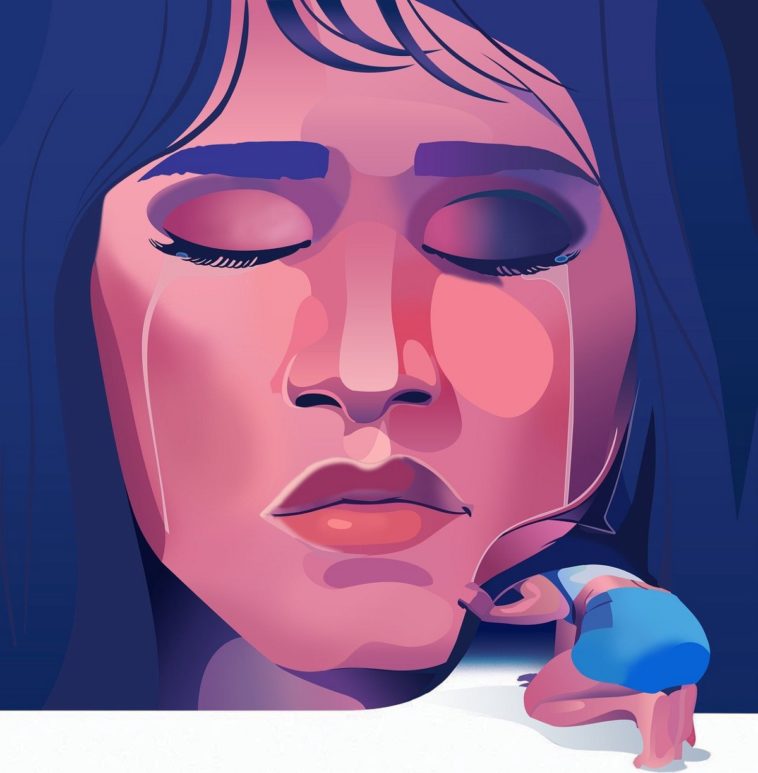h2>Dating : Sadie and Mr. Cat
short fiction
Sadie didn’t find it hard to cry on a bright, sunny day. One child stood at the gravesite. Someone had bought and fastened a suit over his small frame in a rush. It was evident from his hidden hands and the baggy hems at the legs. An elderly man in tweed stood some distance away, and a gaunt woman sat in the only chair, wearing a worn sweater — much too black, much too tight for July.
Sadie let the memories come — of feeding her sister Jane with no one home and using small-child ways to wipe the peanut butter and crackers from the floor. Mom came through the garage door with jangling keys. She walked with her head high and froze when she saw Sadie and Jane.
“Don’t worry, Mommy. Jane ate, and I am cleaning up,” said Sadie.
“No, you’ve done enough,” she spat, “quite enough.” The keys now clattered across the counter, and Sadie flinched as the metal teeth slapped her chest and then clanged at her feet. Mom bent her stockinged knees onto the kitchen floor, her shoulder pads hiked up so that only her gleaming bun shone up and over the collar.
“Stupid,” she whispered. “Stupid, stupid, STU-pid,” she said with every rub on the linoleum.
Jane was still in the high chair with crackers pasted to her cheeks. Sadie stood in her knee socks and Mary Janes and wiped. It was like wiping glued paper from paper. She wiped harder. Jane’s legs stuck out stiff from under the plastic table. Her arms jerked. Sadie rubbed, and Jane began to cry.
“Leave the goddamn baby alone!” Mom said, flinging a bony arm out and striking Sadie across the shins. “Are you deaf? You’re already too stupid to feed the goddamn baby!”
Sadie stared over the rectangular hole in the ground — oblivion adorned with flowers and green canvas so as to resemble grass in the same way that shelf paper is made to look like woodgrain. Sadie let the scene dissolve back to her mother’s hateful gaze and bony arms and Jane screaming in the chair.
She felt her throat tighten, and the tears came, fat and hot. They glopped down her cheeks from under large sunglasses. Her diaphragm spasmed, and her sobs were now loud for everyone to hear. She felt a stranger’s hand on her shoulder.
As the mourners broke away and headed out for ham and liquor, Sadie declined the invitation to join them.
She headed to her car, beeped the lock, and climbed into the stifling hot leather. She blew her nose into a tissue from the cellophane pack in the console. She turned the key and invited the compressor to squeeze icy air across her neck. She tapped a number on her cell and let it ring.
“Yeah.”
“Hey Jake, it’s Sadie. This one’s done. Isn’t there one more for today?”
As an actress, Sadie made money in a smattering of black-box performances across the city. Avant-garde in nature, they were the kind of plays that sometimes called for stark nudity, or Brecht (or both), and drew crowds ranging from militant lesbians to college boys in ascots who pretended like they knew what the fuck was going on.
Money was tight. And then Sadie met Jake, whose hustles included fixed dice and poker games – which didn’t interest her – and selling humans to cry at funerals.
Professional mourners secure employment via an agent. More often than not, Jake had discovered, the deceased added a clause into the will and testament to discreetly hire a mourner, or two, or more. Once Jake figured out how to be a go-to intermediary, he positioned himself in front of every estate attorney in Galveston County.
So, Sadie showed up and gave solace to thin families, those whose members were scarce or almost wholly absent. Often, like today, she showed up for the families of the unlovable — the bridge-burners, the abusers, the liars, and the jerks.
She showed up as the lone friend whom nobody knew, the one person who loved the deceased, for maybe then the family would feel a modicum of peace that such forsaken kin had a side which could be warm.
On a weekend, she could clear six hundred bucks, all without showing her privates.
“There’s one more. Go over to Sloane Park,” Jake said.
Sadie had done two other funerals at Sloane Park the previous February. The cemetery was right outside Quaker’s Cut, which was Sadie’s hometown. The Cut, as it was called by the locals, was a satellite of sprawling Houston. Her childhood home was four-point-two miles from Sloane Park, enough distance for the manicured gardens of brick Tudors and grand colonials to become the weeds that surrounded Sadie’s house. It was once a family neighborhood, now a shoddy hamlet of unkempt rentals.
Sadie knew the distance because she couldn’t help herself. Her childhood home was a slumped, impotent ghost, and yet it pulled at her. She had wrestled away from its grip at age twenty, trading any semblance of the family for life across the world. For ten years she stayed away, and upon coming back into the orbit of home, she sat by the phone. She picked it up and touched it, then lay it down. She had found her brother on social media and looked at his face. She decided to remain invisible, but each time she had to pass through the Cut, even though he lived sixty miles away in North Houston, she was afraid he’d somehow see her. She was grateful for her nondescript funeral get-up.
So, from Sloane on that February day, she set the odometer and drove to the front door of 907 Oak Leaf Lane. Four-point-two miles, a long and leafless drive.
Today, it was hot, and Sadie pulled into the iron gates of Sloane Park Cemetery and parked in the lot. Other cars had already taken the spots under the laurels. Sadie folded out the windshield shade and left the car in the searing sun. She’d gotten used to the sounds of funerals, not so much the crying, but the shuffling, the scuffing of shoes across the pavement and through the trim lawn. Mourners never picked up their feet. Sadie had learned to temper her proud strides and walk as others walked, a slight hunch, head down.
On the far rise was a large gathering. People packed the fold-out chairs four and five deep in a semi-circle in front of the pastor. Behind the chairs, it was standing room only for at least fifty more who’d come to bury a person so adored that second and third cousins of varying removals were certainly there.
This funeral was not Sadie’s job. Hers was down on the flat. Two women walked some distance ahead of her. Sadie let a deep breath hollow out her gut. From the corner of her eye, she saw someone break away from the gravesite. While the other two mourners were walking toward the casket, this man, in a jacket and blue jeans, was coming in her direction at a good clip.
He’d likely forgotten his empty words in the visor of his car.
“Sadie.”
She froze in the middle of the grassy expanse. A buzz ran through her limbs. A burst of adrenaline set her heart thumping.
The word was drowned out by the grass and the hot breeze, but no one could say Sadie and leave you to think they said some other name. You can’t confuse that, not like Christy and Misty, or Bob and Rob.
Sadie could not turn back. She could not pretend she hadn’t been identified, but she still kept her head down, feigning a search through her black handbag.
“Sadie.” There was no mistaking it. He’d drawn up close now, his jacket of linen — not even navy or black — flapping open with his strides.
She couldn’t help what was now a natural response, to move her feet, shuffling in the grass, toward her brother’s still-boyish face, his long arms.
“I never would’ve thought you’d come,” he said.
“Brian,” she said. She broke into a frail smile, which retracted just as fast. She saw the rectangular hole behind him, the coffin still above the green canvas, a single spray of flowers.
The women who walked in the distance ahead of me, she thought. The gait of the one on the right was clear now: Aunt Norma was there at the grave, her partner Leesa stood by her side in a sweater too tight and too black for July.
Aunt Norma had stayed clear of Texas longer than Sadie had.
“I know this is hard for you Sadie,” Brian said, “I know your memories of Mom…” he tried to finish a sentence, and he couldn’t finish it. His gaze went from the grass to her face and back again. He tried to catch her eyes.
She looked at him once and then stared at the casket.
“I’m so happy you’re here,” he said. “Let’s have some drinks after, just you and me.”
Sadie may have nodded. Brian put his arm around her shoulders, and they walked to the grave.
The pastor began the sermon, saying all the requisite words when the family has nothing to say. Sadie let her thoughts go to a rainy day long ago. A neighbor had found the family cat, Mr. Cat. He knew the cat belonged to Sadie’s family. He rang the doorbell at 6:45 a.m. Someone had smacked the cat with a car and left him in the street. There he lay, alone and wet, through the wee hours.
Jane had run into the street, screaming. Dad ran after her with a cardboard box from the garage. The dawn was breaking and the school bus would be there soon, but Dad packed Jane and Sadie and Brian into the van and made a compulsory trip to the vet. Jane held the box on her lap the whole way, stroking Mr. Cat whose tongue lay outside his broken teeth, whose neck was clearly snapped.
Only Dad and Jane went into the animal hospital. Brian and Sadie were silent as the rain spilled over the windshield and down the windows of the van. The engine made intermittent clicking noises as it cooled. The keys were in the ignition.
When they came out, Jane still had the box, but now it was closed. She held it on her lap for the drive home.
They pulled up in the soaked driveway, the rain still falling and reflecting the utility poles into the sky. Dad got a shovel and brought them all out to the backyard, a wide expanse of thick, sharp St. Augustine grass.
He sank the shovel through the green and brought up a chunk of black earth. Topped with the green grass, Sadie thought it looked like a slice of cake. He tossed it aside. Jane’s fingers whitened around the box and she began to sob. Brian stood with his head bent to his shoes. The bottoms of his corduroys were soaked. Another shovel full of earth blighted the lawn. Sadie stood with her book satchel over her shoulder and the rain falling on her hair. She stared into the earth, and her heart broke for Jane.
And now, her throat tightened, and the tears welled up and out of Sadie’s eyes. They glopped out from under her sunglasses and over her cheeks, and Aunt Norma made choking sounds at the loss of her sister, a woman who’d driven everyone away. Sadie had managed to live around the same city and remain anonymous — until today. Until she’d been called to do a job.
She held tighter to Brian. She started to feel the need for those drinks. She marveled at the sadness from her memory of Mr. Cat, and her heart swelled for her baby sister Jane —
— who wasn’t even there.



